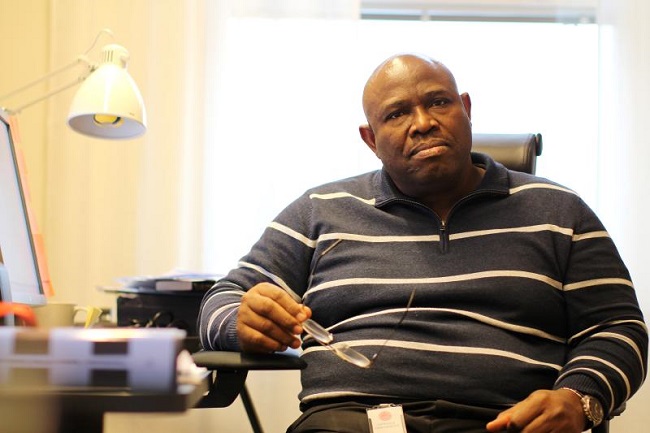Nigeria: One man’s war on corruption
It seems as if the campaign promises made during last year’s election were not just cheap talk. President Muhammadu Buhari of Nigeria has during his first year in office launched serious initiatives to fight corruption. Although there have to date been few convictions, several cases involving billions and billions of embezzled state finances have been brought out into the open.
“To change behaviour and the management of public funds takes more than putting a few crooks behind bars. Now Nigeria seems to have a strong leader, but state institutions are still weak. Both need to be strong in order to combat corruption sustainably,” Adetula argues.
To people’s hearts
What is also not completely clear about Buhari’s war on corruption is whether he has the full support of his own party members. Adetula is sceptical.
“The party, of course, backs its leader but the other members don’t seem to be actively involved in the campaign. It appears to be one man’s war. If this is because they have other opinions, l can’t say. In any case, they are stuck with Buhari because he won the election on the anti-corruption issue, and the Nigerian people have taken him to their hearts,” Adetula remarks.
Sealing leakages
However, not everyone is thrilled with President Buhari’s focus on corruption. Critics have hinted that it’s only a diversion to cover up other, more urgent, governance responsibilities, such as improving livelihoods and living conditions for Nigerian people. Adetula understands the criticism but concurs with the president’s priorities.
“If money earmarked for improving service delivery never reaches the destination due to embezzlement, nothing is gained anywhere. Sealing the leakages is the first step. However, the president should better communicate the government’s strategy to the people. He must explain why it is important to stop the money-leakage and what will happen next. People need to understand the long-term objectives of the anti-corruption struggle,” Adetula states.
Weaker Boko Haram
The uncovering of how money intended to buy ammunition in the fight against Boko Haram disappeared into pockets of individuals was a huge embarrassment to the former government. It was also a reason for the Nigerian armed forces’ inability to deal with the insurgents. Once President Buhari restructured the military command and ensured that ammunition was reaching the soldiers, Boko Haram lost 75 per cent of the territory it had previously occupied.
“So by fighting corruption, President Buhari has also managed to deliver on his other election promise – to enhance state security. On the other hand, as Boko Haram has become weaker, it has returned to attacking soft targets,” Adetula notes.
Nordic Africa Institute


